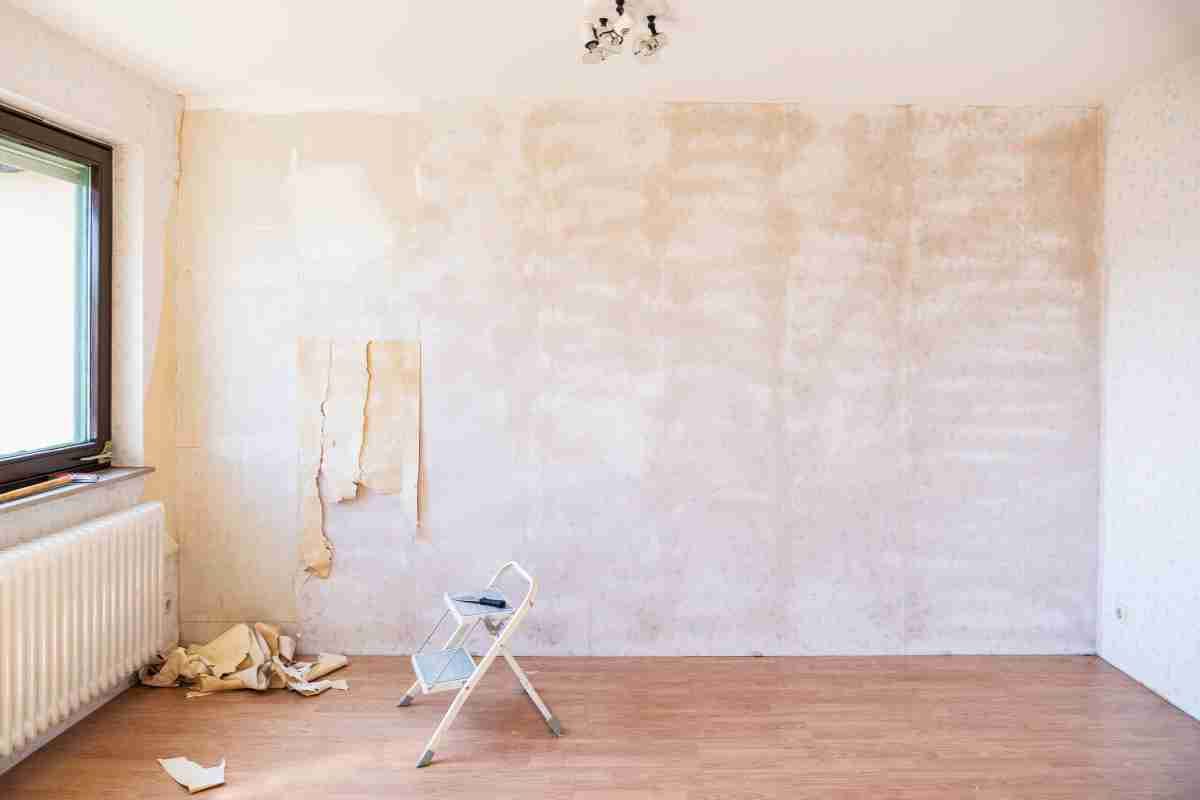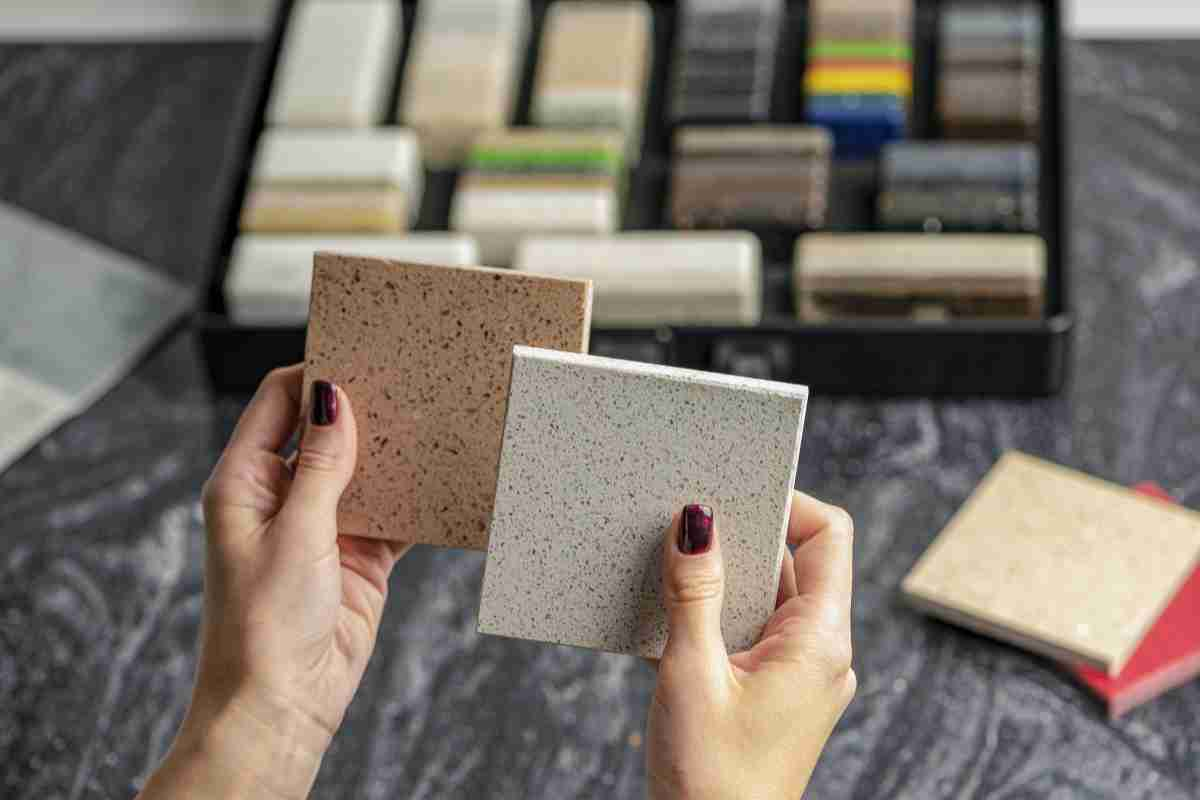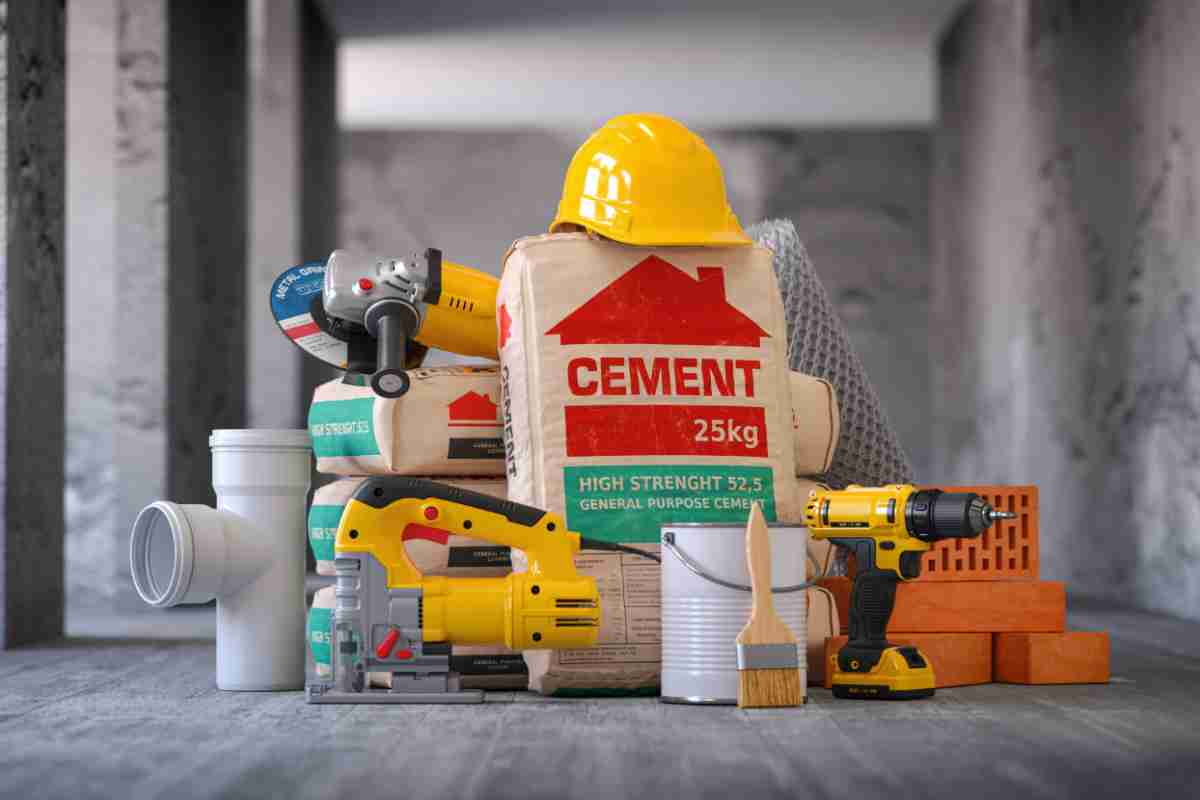How To Find A Building Materials Supplier For Your Renovation Project
Renovating? Choosing the right building materials is crucial for success, impacting aesthetics, functionality, durability, and cost-efficiency.

Renovating a property is a significant undertaking that often requires diverse building materials. These materials significantly impact your project's success as they help you achieve the aesthetic value, functionality, durability, and cost-efficiency you desire. Having the best materials can help you transform your design ideas into reality.
Whether you're updating a single room or overhauling an entire building, finding a reliable building materials supplier is crucial to the success of your project.
This article will help you select the right supplier to ensure your renovation goes smoothly. Read on to learn more!

1. Determine your needs
Before you search, clearly define the materials you need for your renovation. This might include lumber, drywall, concrete, roofing materials, tiles, etc. Prepare a detailed list that you can share with potential suppliers to ensure you don't overlook any essential items.
2. Research potential suppliers
Start by researching local and online suppliers specializing in the needed materials. For instance, you can visit reputable shops such as Bradley Building Products and explore their website: https://bradley.build/. Make sure to check reviews and ratings to see if a supplier is reliable and sells quality items. Also, it's best to work with a reputable company with generally favorable customer feedback.
3. Evaluate supplier offerings
Not all suppliers are created equal. Some specialize in specific materials, while others offer a more comprehensive range. Look for a building materials supplier who can provide most, if not all, of the materials on your list. This can simplify logistics and potentially save you money on bulk purchases.
4. Check availability and delivery options
Ensure your chosen supplier has the needed materials and can deliver them within your required timeframe. Delays in receiving materials can significantly impact your renovation schedule. Many suppliers offer fast and reliable delivery services, so it's okay to have high expectations on this end.
5. Compare prices
Budget is always a critical factor in any renovation project. Once you have a list of potential suppliers, compare their prices. Keep in mind that the cheapest option isn't always the best. Consider factors like the quality of materials, delivery costs, and any additional services provided. Sometimes, paying more for higher quality and better service can save you money in the long run.
6. Visit supplier locations
If possible, visit the supplier's location to see their materials firsthand. This can give you a better idea of the quality and help you make a more informed decision. It lets you discuss your project with the supplier and get personalized recommendations.
7. Consider supplier reliability and customer service
A reliable building materials supplier should also offer excellent customer service. They must offer precise quotations and punctual deliveries and be responsive to any concerns you might have regarding your project. Remember, good communication is vital to ensuring that your renovation project stays on track.
8. Ask for recommendations
Word of mouth is a powerful tool. Seek advice from acquaintances, relatives, or coworkers who have completed comparable projects for suggestions. They can offer perspectives on their interactions with various vendors and assist you in making a better-informed decision.
9. Check for sustainability
Nowadays, when conscious consumerism is becoming the norm, sustainability has become a priority in the construction industry. Sustainable suppliers provide eco-friendly materials that reduce waste, lower carbon emissions, and promote renewable resources. This helps conserve natural resources and combat climate change.
Additionally, using sustainable materials can enhance the energy efficiency and longevity of the building, leading to long-term cost savings. Sustainable materials often meet higher performance standards, resulting in lower maintenance and operational costs over the building's lifespan. This not only benefits the environment but also provides financial advantages.
Moreover, a sustainable supplier aligns with increasing regulatory and market demands for green construction practices. It improves your project's compliance with environmental regulations and can enhance its marketability by appealing to eco-conscious stakeholders. This alignment with sustainability trends can boost the project's reputation and value.
10. Finalize your choice
After thorough research and evaluation, finalize your choice of building materials supplier. Review the terms and conditions, including return policies and warranties. Having everything in writing can prevent misunderstandings and ensure a smooth transaction.
By following these steps, you can ensure that you select a supplier who meets your needs and helps bring your renovation vision to life.
The importance of having a reputable construction material supplier
Finding a suitable material supplier is critically essential when undertaking a renovation project. Here are several key reasons why:

1. Quality of materials
The quality of materials used in a renovation project directly impacts the durability and finish of the work. A reputable building materials supplier ensures that you get high-quality materials that meet industry standards. This lessens the likelihood of future repairs and is also beneficial to the overall aesthetic value of the project.
2. Consistency and reliability
A good supplier consistently provides the materials you need on time and in the required quantities. This reliability is crucial to maintaining the project schedule and avoiding delays. Delays caused by late or incomplete deliveries can increase labor costs and extend project timelines.
3. Cost-effectiveness
Working with a reliable supplier can also be cost-effective in the long run. They can offer competitive pricing, bulk purchase discounts, and flexible payment options. Additionally, the reduced likelihood of receiving substandard materials means fewer replacements and repairs, saving you money.
4. Expert advice and support
A knowledgeable supplier can provide valuable advice and support throughout your project. They can recommend the best materials for specific applications, suggest alternatives that might save money, and help troubleshoot any issues. Their expertise can be valuable for complex or large-scale renovations.
5. Convenience and Efficiency
A good supplier typically has a wide range of materials available, ensuring you can find everything you need in one place. A one-stop shop simplifies the procurement process by providing all necessary materials. This reduces the time and effort spent coordinating purchases from multiple suppliers, streamlining the logistics, and making the project timeline more manageable.
6. Simplified Communication and Support
Working with a single supplier means dealing with one point of contact for all your needs, making communication more straightforward and efficient. It also means that any issues or questions can be resolved quickly, with the supplier comprehensively understanding your project requirements.
7. Long-term relationships
Establishing a relationship with a good supplier can be beneficial for future projects. Long-term relationships often lead to better service, loyalty discounts, and priority treatment, which can benefit ongoing or subsequent renovation work.
8. Risk protection
Choosing a reputable supplier helps mitigate risks associated with poor-quality materials, such as structural failures, health hazards, or non-compliance with building codes. Reliable suppliers often have rigorous quality control processes, ensuring the materials you receive are safe and compliant.
A suitable material supplier is a cornerstone of any successful renovation project. Once you find the best one, you'll have guaranteed access to high-quality materials, reliable service, and expert support, all of which contribute to a smooth, efficient, cost-effective renovation process.
Physical or virtual store?
When choosing between a brick-and-mortar and a virtual store for purchasing construction supplies, several factors come into play. Each option has its own set of advantages and disadvantages:
Physical store
One of the primary benefits of a brick-and-mortar store is the ability to inspect and verify the quality of materials before purchasing physically. This ensures you get precisely what you need, reducing the risk of receiving substandard or incorrect items. Additionally, purchases can be made and taken away on the same day, which is ideal for urgent needs. There's no waiting for delivery, which can be crucial in keeping a project on schedule. In-person interactions allow for immediate assistance, expert advice, and personalized service. This can prove especially beneficial for intricate projects that require guidance.
However, brick-and-mortar stores have fixed operating hours and may not be accessible to everyone, especially in remote locations. This can limit flexibility in terms of when you can shop. Visiting a physical store involves travel time and potentially transportation costs. This could be a hassle and increase the total cost of the project.
Virtual store
Online shops are available around the clock, no matter where you are, as long as you have an internet connection. You can shop any time, fitting seamlessly into busy schedules. They often offer a more comprehensive range of products than their physical counterparts, making finding specific or specialized items easier. Online platforms facilitate easy price comparisons and frequently offer discounts or promotions, which can help find the best deals and save money.
However, the primary drawback of virtual stores is the inability to inspect products physically before physical purchase. Expectations and the actual quality when it's delivered may not match up.
Shipping times are also to be considered, as they can delay the project if materials are needed urgently. Moreover, the cost of shipping may increase the total amount, especially for large or heavy products. Returning or exchanging items can be more cumbersome and time-consuming with online purchases, causing further delays and inconvenience if materials are not as expected.
Choosing between a brick-and-mortar and a virtual store depends on specific project needs, priorities, and circumstances. Brick-and-mortar stores offer immediate availability and the assurance of physical inspection, while virtual stores provide unparalleled convenience, broader selection, and potentially better pricing. Evaluating the importance of these factors in the context of your renovation project will help determine the best option for sourcing construction supplies.
Conclusion
Think of your construction material supplier as a partner in your present and possibly future renovation projects. Naturally, you'll want someone trustworthy and reliable on your side as you work on these essential undertakings. Aside from this, it would be best if you also were aligned regarding your idea of quality in construction materials and maintaining a healthy balance between quality and cost. Considering all these, you have better chances of finding the best supplier you'd be glad to work with for a long time.




Comments ()